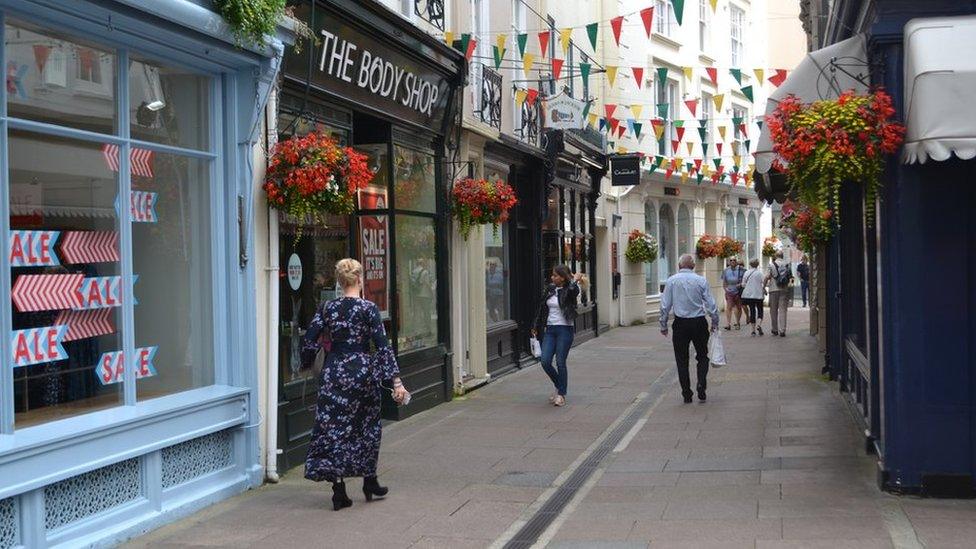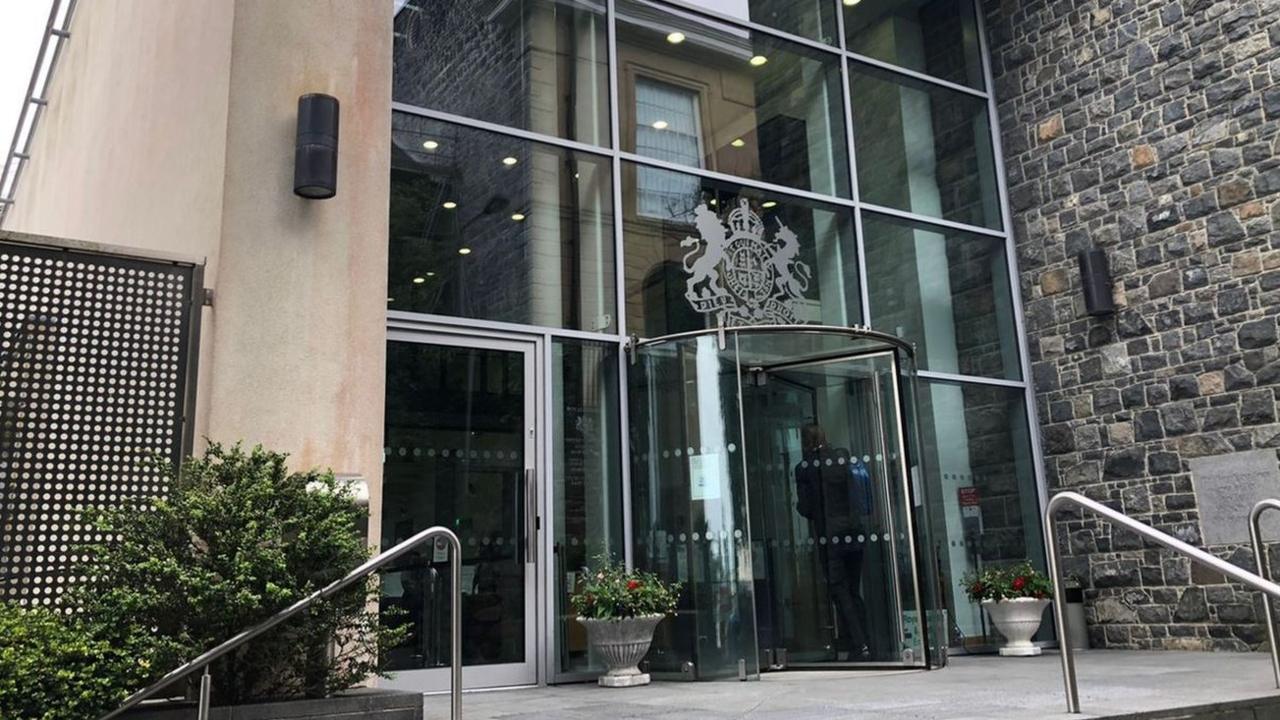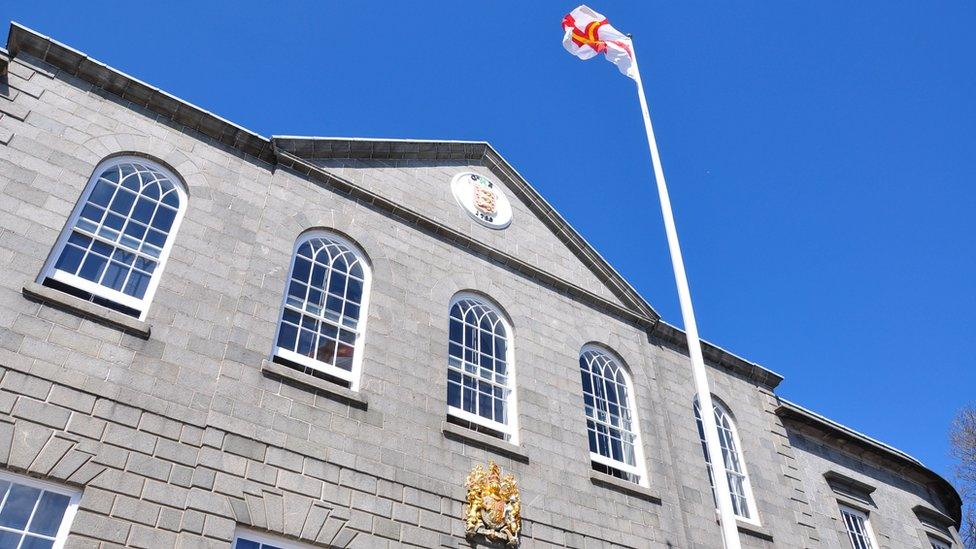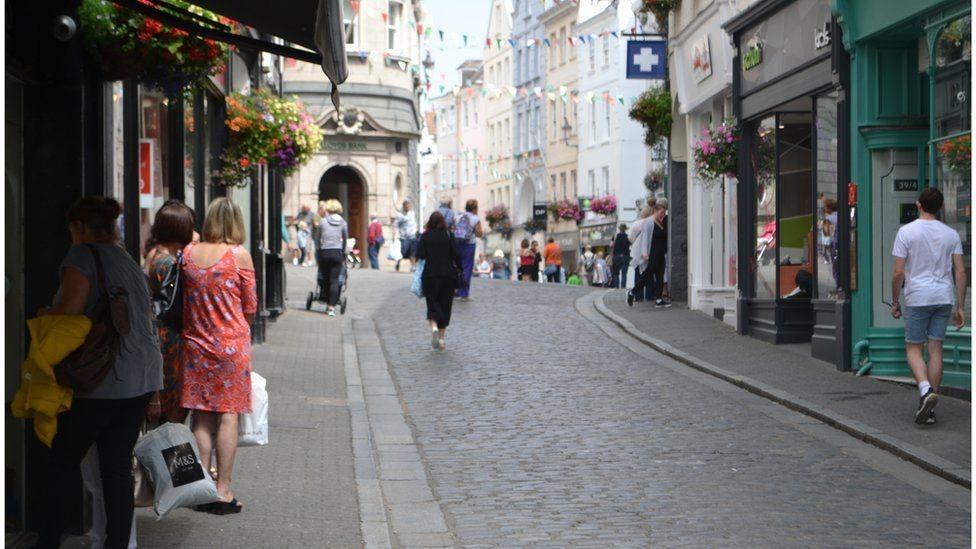GST should be introduced in Guernsey, tax review finds
- Published

The GST would apply to most goods and services
A goods and services tax (GST) should be introduced in Guernsey to help improve public finances, a tax review has recommended.
The Policy and Resources Committee proposals also suggest a new 15% income tax band on income up to £30,000.
They also suggest a £600 increase in personal tax allowance and a restructure of the social security contribution system.
Islanders on a median income would pay an estimated £1,100 in GST every year.
President of Policy and Resources Peter Ferbrache said: "The majority of our population will be marginally better off and the poorest won't be worse off.
"If services were cut I would try to protect health as much as possible, as people's health is the most important thing, but it is also the most expensive thing.
"If the States say they won't increase taxes, I wonder what we will do. We would ultimately have to borrow money and I don't think that's a practical alternative for a small community like Guernsey.
"A lot of people saw corporate tax as the panacea.
"We went out and reviewed what we could get from companies without scaring off companies and the best we can achieve at the moment is circa £20m.
"We can't put this off any longer. If the States delays January's debate the introduction of a GST would be post-election."

Analysis by BBC Guernsey political reporter John Fernandez
Policy and Resources knows if these proposals don't land with its colleagues in the States - the 2024 budget will be brutal.
Their plans state if the package proposed isn't backed a primary school may be closed, family allowance could be scrapped and bodies like the Sports/Arts Commission could have their budgets slashed.
Are these threats of swathes of cuts enough to sell a scheme which landed poorly with politicians and the public earlier this year?
Anti-GST diehards like Deputy Liam McKenna won't be moving, that's for sure.
The question is whether the coalition can convince the collection of former treasury ministers in the States at the moment to back their plans - alongside other GST sceptic members like Economic Development Committee Vice-President Deputy Simon Vermuelen.

The review found introducing a broad-based GST at a rate of 5% was the preferred way to raise most of the revenue needed to put the island's finances on a sustainable footing.
According to the review, the introduction of the new tax band would "partially offset" the higher prices caused by the GST for low and middle-income households.
It estimated a person on the median income of £37,000 a year would reduce their tax bill by about £900 a year under the scheme.
'International norms'
A recommendation to make the social security contribution system more progressive, meaning wealthier households pay more, would save those on the minimum wage of £17,400 about £860 a year.
Meanwhile, the review said introducing a GST would bring Guernsey "closer to international norms".
It said the tax would be applied to most goods and services, but rent and mortgages would be exempt.
"The absence of a GST or similar consumption-based tax from Guernsey's tax base makes Guernsey highly unusual," the review said.
"Almost every other jurisdiction in the world applies one."
To help cut down on the budget deficit - estimated to be £100m by 2040 - the recommendations contained in the review are projected to raise between £50m and £60m from households, businesses and visitors by 2025.
States members are due to debate the review in January.

Follow BBC Guernsey on Twitter, external and Facebook, external. Send your story ideas to channel.islands@bbc.co.uk.
Related topics
- Published14 November 2022

- Published2 November 2022

- Published4 October 2022

- Published28 March 2022

- Published10 February 2022

- Published7 February 2022
